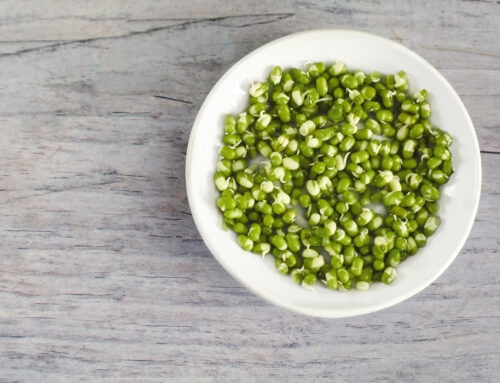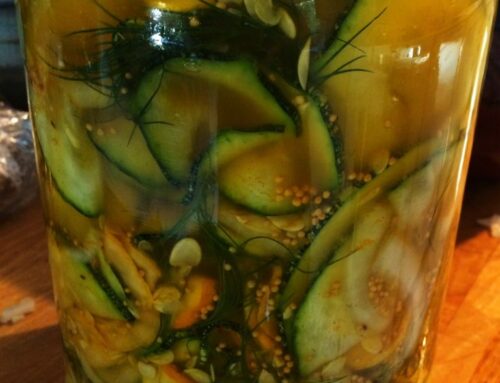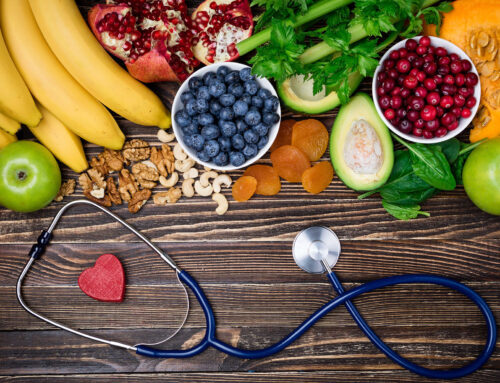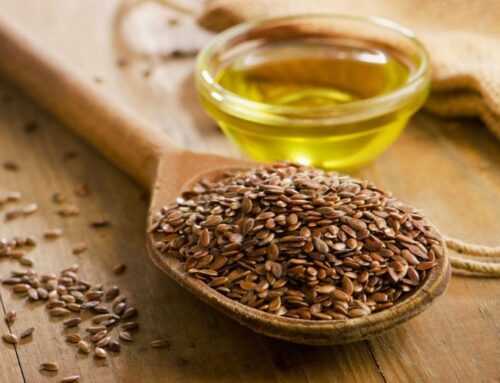By Brenda Davis RD, co-author of the Becoming Vegan: Comprehensive Edition, The Complete Reference to Plant Based Nutrition and of the award winning Becoming Vegan: Express Edition.
 There are few foods that have been at once maligned and acclaimed as much as coconut oil. Some view it as a notorious health villain because it’s the most concentrated source of saturated fat in the diet — even higher than butter or lard. Not surprisingly, it rests at the very top of the list of foods that must be strictly avoided in many heart-healthy diet programs. At the other end of the spectrum are those people who view coconut oil as a fountain of youth and the greatest health discovery in decades. These coconut advocates claim that coconut oil can provide therapeutic benefits for cancer, diabetes, digestive disturbances, heart disease, high blood pressure, HIV, kidney disease, osteoporosis, and overweight. So what is the truth? Is coconut oil a menace or a miracle where health is concerned?
There are few foods that have been at once maligned and acclaimed as much as coconut oil. Some view it as a notorious health villain because it’s the most concentrated source of saturated fat in the diet — even higher than butter or lard. Not surprisingly, it rests at the very top of the list of foods that must be strictly avoided in many heart-healthy diet programs. At the other end of the spectrum are those people who view coconut oil as a fountain of youth and the greatest health discovery in decades. These coconut advocates claim that coconut oil can provide therapeutic benefits for cancer, diabetes, digestive disturbances, heart disease, high blood pressure, HIV, kidney disease, osteoporosis, and overweight. So what is the truth? Is coconut oil a menace or a miracle where health is concerned?
When comparing extracted fats and oils, the primary criticism of coconut oil is that over 80-90 percent of its fat is saturated. Saturated fat is known to increase blood cholesterol levels. When coconut oil is blacklisted, it’s almost exclusively because of this extreme saturated-fat content. While many people imagine saturated fat as a single tyrant that clogs arteries, there are actually several different types of saturated fats. These fats contain between 4 and 28 carbons, and depending on the length of their carbon chain, they have very different effects on blood cholesterol levels. The saturated fats that are most plentiful in the diet are lauric acid (12 carbons), myristic acid (14 carbons), palmitic acid (16 carbons), and stearic acid (18 carbons). Sources of Saturated Fatty Acids with 12 to 18- Carbon Atoms saturated fats include: Lauric acid (12 carbons) – coconut, coconut oil, palm kernel oil; Myristic acid (14 carbons) – coconut, dairy products, nutmeg oil, palm kernel oil, palm oil; Palmitic acid (16 carbons) – animal fats, palm oil; Stearic acid (18 carbons) – beef, butter, cocoa butter, lard, mutton. Saturated fatty acids, with 12–16 carbons, increase blood cholesterol levels, while stearic acid does not. However, replacing stearic acid with unsaturated fat does lower LDL cholesterol.(1) When stearic acid reaches the liver, it’s converted to oleic acid (an 18-carbon monounsaturated fat), which may help to explain why it doesn’t raise cholesterol. As a result, consumers are often advised not to be concerned about their intake of stearic acid. However, what many do not realize is that cholesterol is not the only marker for heart disease, and adverse effects of stearic acid have been reported. In one large study, stearic acid increased coronary artery disease risk more than lauric, myristic, or palmitic acid.(1,2) Apparently, stearic acid may reduce good HDL cholesterol, increase Lp(a), which is another risk factor for heart disease, increase certain blood-clotting factors, and result in lipemia (excess fat in the blood) after eating.(2,3, 4) In a critical review of dietary fats and coronary artery disease, the authors of the review advised that stearic acid not be distinguished from other saturated fats when providing dietary advice to reduce coronary artery disease.(2,3)
The benefits seem to apply only when coconut products are consumed along with a diet that is unprocessed and rich in high-fiber plant foods. When the indigenous diet gives way to a more processed, Western-style diet laden with white flour, sugar, and fatty animal products, disease rates escalate even when coconut continues to be consumed.
Coconut oil is about 50 percent lauric acid, 18 percent myristic acid, and 8 percent palmitic acid. This adds up to 76 percent of the fat in coconut oil being the kind that raises cholesterol. Case closed? Well, not exactly. When carbohydrate is replaced by lauric acid, it raises LDL cholesterol, although only about half as much as myristic and palmitic a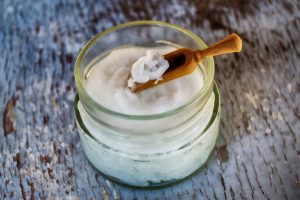 cids.(1) The predominant fat, lauric acid, does raise total cholesterol, but it appears to raise good HDL cholesterol to an even greater extent than bad LDL cholesterol. The effect on the ratio of total to HDL cholesterol is consistently favorable.(4,5,6,7) While for many years this was considered cardio-protective, newer research suggests that changes in HDL caused by diet or medications do not reduce cardiovascular disease risk. The bottom line is that coconut oil increases LDL cholesterol, and even though its impact is less potent than butter, it still increases cardiovascular risk.(1) Myristic and palmitic acid do not have this affect. We don’t really know. We do have evidence that fats rich in lauric acid, such as coconut oil, result in more favorable blood cholesterol levels than hydrogenated vegetable oils laden with trans fats.(4) We do have evidence that fats rich in lauric acid, such as coconut oil, result in more favorable blood cholesterol lower cholesterol levels and cardiovascular risk, than hydrogenated vegetable oils laden with trans fats.(1,4) Trans-fatty acids not only raise bad LDL cholesterol, but they also decrease good HDL cholesterol. We also know that replacing trans-fat with polyunsaturated oil, and to a slightly lesser extent, monounsaturated oil, will produce far more favorable outcomes. Coronary artery disease risk is reduced most effectively when trans-fatty acids and saturated fatty acids are replaced with unsaturated fatty acids.(1,2)
cids.(1) The predominant fat, lauric acid, does raise total cholesterol, but it appears to raise good HDL cholesterol to an even greater extent than bad LDL cholesterol. The effect on the ratio of total to HDL cholesterol is consistently favorable.(4,5,6,7) While for many years this was considered cardio-protective, newer research suggests that changes in HDL caused by diet or medications do not reduce cardiovascular disease risk. The bottom line is that coconut oil increases LDL cholesterol, and even though its impact is less potent than butter, it still increases cardiovascular risk.(1) Myristic and palmitic acid do not have this affect. We don’t really know. We do have evidence that fats rich in lauric acid, such as coconut oil, result in more favorable blood cholesterol levels than hydrogenated vegetable oils laden with trans fats.(4) We do have evidence that fats rich in lauric acid, such as coconut oil, result in more favorable blood cholesterol lower cholesterol levels and cardiovascular risk, than hydrogenated vegetable oils laden with trans fats.(1,4) Trans-fatty acids not only raise bad LDL cholesterol, but they also decrease good HDL cholesterol. We also know that replacing trans-fat with polyunsaturated oil, and to a slightly lesser extent, monounsaturated oil, will produce far more favorable outcomes. Coronary artery disease risk is reduced most effectively when trans-fatty acids and saturated fatty acids are replaced with unsaturated fatty acids.(1,2)
The effect of coconut oil, rich in lauric acid, remains somewhat uncertain. However, we cannot ignore the fact that in many parts of the world where coconut and coconut oil are staples in indigenous diets, rates of chronic disease, including coronary artery disease, are low.(7,8,9,10) There is one major caveat. The benefits seem to apply only when coconut products are consumed along with a diet that is unprocessed and rich in high-fiber plant foods. When the indigenous diet gives way to a more processed, Western-style diet laden with white flour, sugar, and fatty animal products, disease rates escalate even when coconut continues to be consumed.
It is worth noting that most of the fatty acids in coconut, particularly lauric acid, are known to have significant antimicrobial properties.(10,11,12,13,14) Virgin coconut oil also contains a variety of protective phytochemicals, including phenolic acids, which are largely eliminated through the refining process.(14,15,16) Another important attribute of coconut fat is its stability. It is so highly saturated, so when refined it is not that it is not easily oxidized or otherwise damaged.(16,17)
Plant foods that grow close to the equator have a higher quantity of saturated fatty acids in order to protect themselves from the ravages of oxidation that occurs in warm temperatures. Foods that grow in cold climates generally contain higher amounts of unsaturated fats such as omega-3 fatty acids. Once again, this is necessary for the survival of the plant and its seeds; certain fluids in the plant need to remain liquid, even in very cold temperatures. Judicious intakes of saturated fat that comes from whole plant foods, such as coconut, may in fact turn out to be of benefit for vegans. Vegan diets sometimes contain excessive amounts of unsaturated fats, which are more prone to oxidation, while the saturated fats in coconut are very stable fats with a low risk of oxidation. While we want to keep our total intake of saturated fat low, we don’t want to completely eliminate it (an impossible task on any diet).
Base your diet on whole plant foods, and when you do use coconut oil, make sure it is organic and virgin.
It turns out that while coconut oil may not be a miracle food, it may not be quite the menace once believed. Coconut should be treated in much the same way as other high-fat plant foods—enjoyed primarily as a whole food. As such, it is loaded with fiber, vitamin E, and healthful phytochemicals. As a bonus, it has powerful antimicrobial properties. On the other hand, coconut oil should be viewed the same way as other concentrated oils: a food that provides a lot of calories with very few nutrients. When your diet is high in concentrated fats, it can be difficult to meet your needs for extracted nutrients. It’s okay to use some coconut oil when preparing special-occasion treats, but don’t rely on it as part of your daily fare. Base your diet on whole plant foods, and when you do use coconut oil, make sure it is organic and virgin.
References:
1. Sacks FM, Lichtenstein AH, Wu JHY, Appel LJ, Creager MA, Kris-Etherton PM, Miller M, Rimm EB, Rudel LL, Robinson JG, Stone NJ, Van Horn LV; American Heart Association. Dietary Fats and Cardiovascular Disease: A Presidential Advisory From the American Heart Association. Circulation. 2017 Jul 18;136(3):e1-e23.
2. Hu FB, Stampfer MJ, Manson JE, et al. Dietary saturated fats and their food sources in relation to the risk of coronary heart disease in women. Am J Clin Nutr. 1999;70:1001–8.
3. Hu FB, Manson JE, WillettWC. Types of dietary fat and risk of coronary heart disease: a critical review. J Am Coll Nutr. 2001;20:5–19.
4. Connor WE. Harbingers of coronary heart disease: dietary saturated fatty acids and cholesterol. Is chocolate benign because of its stearic acid content? Am J Clin Nutr. 1999;70:951-2.
5. de Roos NM, Schouten EG, Katan MB. Consumption of a solid fat rich in lauric acid results in a more favorable serum lipid profile in healthy men and women than consumption of a solid fat rich in trans-fatty acids. J Nutr. 2001;131:242-5.
6. Mensink RP, Zock PL, Kester AD, Katan MB. Effects of dietary fatty acids and carbohydrates on the ratio of serum total to HDL cholesterol and on serum lipids and apolipoproteins: a meta-analysis of 60 controlled trials. Am J Clin Nutr. 2003;77:1146-55.
7. Ng TK, Hassan K, Lim JB, Lye MS, Ishak R. Nonhypercholesterolemic effects of a palm-oil diet in Malaysian volunteers. Am J Clin Nutr. 1991;53(4 Suppl):1015S-1020S.
8. Prior IA, Davidson F, Salmond CE, Czochanska Z. Cholesterol, coconuts, and diet on Polynesian atolls: a natural experiment: the Pukapuka and Tokelau island studies. Am J Clin Nutr. 1981;34:1552-61.
9. Lipoeto NI, Mmedsci, Agus Z, Oenzil F, Masrul M, Wattanapenpaiboon N. Contemporary Minangkabau food culture in West Sumatra, Indonesia. Asia Pac J Clin Nutr. 2001;10:10-6.
10. Lipoeto NI, Agus Z, Oenzil F, Wahlqvist M, Wattanapenpaiboon N. Dietary intake and the risk of coronary heart disease among the coconut-consuming Minangkabau in West Sumatra, Indonesia. Asia Pac J Clin Nutr. 2004;13:377-84.
11. Ogbolu DO, Oni AA, Daini OA, Oloko AP. In vitro antimicrobial properties of coconut oil on Candida species in Ibadan, Nigeria. J Med Food. 2007;10:384-7.
12. Erguiza GS, Jiao AG, Reley M, Ragaza S. The effect of virgin coconut oil supplementation for community-acquired pneumonia in children aged 3 to 60 months admitted at the Philippine Children’s Medical Center: a single blinded randomized controlled trial. Chest. 2008;134:139001.
13. Hierholzer JC, Kabara JJ. In vitro effects of monolaurin compounds on enveloped RNA and DNA viruses. J Food Safety. 1982;4:1-12.
14. Carpo BG, Verallo-Rowell VM, Kabara J. Novel antibacterial activity of monolaurin compared with conventional antibiotics against organisms from skin infections: an in vitro study. J Drugs Dermatol. 2007;6:991-8.
15. Nevin KG, Rajamohan T. Beneficial effects of virgin coconut oil on lipid parameters and in vitro LDL oxidation. Clin Biochem. 2004;37:830-5.
16. Marina AM, Man YB, Nazimah SA, Amin I. Anti oxidant capacity and phenolic acids of virgin coconut oil. Int J Food Sci Nutr. 2008; Dec 29:1-10. [Epub ahead of print]
17. Chow, CK. Fatty acids in foods and their health implications. 3rd ed. Boca Raton, FL: CRC Press, 2007.
* Adapted from Becoming Vegan: Comprehensive Edition (by Brenda Davis and Vesanto Melina, Book Publishing Company). For more on fats and oils, see their Becoming Vegan: Comprehensive Edition–The Complete Reference to Plant Based Nutrition and Becoming Vegan: Express Edition Book Publishing Company



